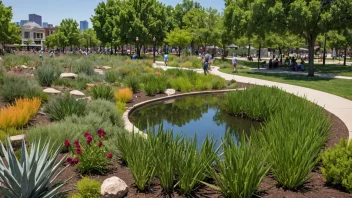As the world faces unprecedented environmental challenges, the role of environmental non-governmental organizations (NGOs) in preserving biodiversity has never been more crucial. These organizations serve as vital advocates, researchers, and community mobilizers dedicated to protecting the rich variety of life that sustains our planet. Understanding their contributions sheds light on the pathways toward a more sustainable and equitable future for all living beings.
Environmental NGOs are often the first to bring attention to the alarming decline in biodiversity due to habitat loss, climate change, pollution, and overexploitation of resources. Through targeted campaigns and educational initiatives, they raise awareness about the critical importance of biodiversity and its direct impact on human health and wellbeing. By engaging citizens in discussions about biodiversity, NGOs foster a culture of conservation and encourage individuals to take action in their daily lives.
One of the unique strengths of environmental NGOs lies in their ability to conduct on-the-ground conservation initiatives. These organizations frequently collaborate with local communities and stakeholders to develop and implement effective conservation strategies. From establishing protected areas to restoring degraded habitats, NGOs play a significant role in safeguarding ecosystems and the species that inhabit them. Their grassroots approach ensures that conservation efforts are culturally relevant and economically viable, ultimately leading to greater success and sustainability.
Research and data collection are fundamental aspects of an NGO's work. Many organizations conduct scientific studies to monitor biodiversity and assess the health of ecosystems. This research is invaluable for informing conservation strategies and policies. By sharing their findings with policymakers and the public, NGOs help bridge the gap between science and action, ensuring that decisions regarding biodiversity conservation are well-informed and effective.
Advocacy is another critical component of the work carried out by environmental NGOs. They actively engage in lobbying for policies that protect biodiversity and promote sustainable development practices. By working at local, national, and international levels, NGOs help shape environmental regulations and push for global agreements that address biodiversity loss. Their voices are essential in ensuring that biodiversity is prioritized in discussions about climate change, land use, and resource management.
In conclusion, environmental NGOs are indispensable partners in the fight to preserve biodiversity. Through education, conservation initiatives, research, and advocacy, these organizations are making a profound impact on the health of our planet. As individuals, we can support these efforts by educating ourselves about biodiversity issues, volunteering for local conservation projects, and advocating for sustainable practices in our communities. Together, we can create a world where biodiversity thrives and ecosystems flourish, ensuring a resilient future for generations to come.
NGOs: Key Players in Biodiversity Preservation
Explore the crucial role of environmental NGOs in preserving biodiversity and promoting sustainable practices for a healthier planet.






